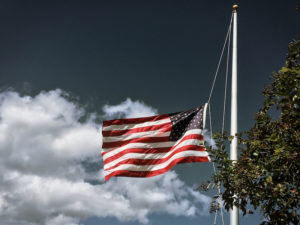
The Supreme Court declines to hear some high profile cases, the Transportation Department moves to protect passengers affected by delays, and more…
IN THE NEWS
- The U.S. Supreme Court declined to hear an appeal of a United States Court of Appeals for the First Circuit decision which held that the Boston public school system’s method for considering admissions to selective high schools was not unlawful race discrimination under the 14th Amendment. A group of white and Asian parents challenged the school district’s policy of considering an applicant’s geographic location as violating the Equal Protection Clause of the 14th Amendment under Students for Fair Admissions v. Harvard. The First Circuit determined that because the policy was race-neutral on its face it did not constitute race discrimination. Justices Samuel Alito and Clarence Thomas dissented from the decision to deny the appeal, writing that the case implicated “overwhelming direct evidence of intentional discrimination.”
- The U.S. Department of Transportation, which houses the Federal Aviation Administration, is seeking public comments on a proposed rule titled “Airline Passenger Rights.” The proposed rule is designed to protect consumers from financial losses caused by significant flight disruptions. The Transportation Department noted in the proposed rule that it is considering whether and how to require airlines to provide affected passengers with “cash compensation, free rebooking,” meals, and lodging. The agency invited the public to comment on several issues, such as determining whether airlines that do not provide accessibility features to disabled passengers should offer free rebooking to those passengers and their parties. The agency will accept comments until February 10, 2025.
- The Occupational Safety and Health Administration (OSHA) issued a final rule establishing an explicit requirement that personal protective equipment (PPE) must “fit properly,” aligning OSHA’s standards with “general industry and shipyard” standards. OSHA and commenters noted that the change will benefit women in the construction industry, who often lack access to properly fitting PPE, and one safety expert stated that employees are more likely to remove PPE when it does not fit properly. The Construction Industry Safety Coalition, which represents trade associations, objected, stating that compliance would be a “monumental task” and that the standard is unclear. OSHA replied that it has historically interpreted PPE requirements to require proper fit, has published guidance to that effect, and has issued citations to construction employers for violations.
- The U.S. Supreme Court declined to hear an appeal from a United States Court of Appeals for the Seventh Circuit decision, in which the court held that a group of concerned parents lacked standing to sue a public school district for its guidance on handling transgender students. In the case, the parents group sued the public school system of Eau Claire, Wisconsin after it issued guidance indicating that the school district need not alert parents in all instances of a “Gender Support Plan” that the district created for their students. The Seventh Circuit determined that the parents lacked standing to bring suit because they could not show that the policy had applied or would apply to their children. Justices Brett Kavanaugh, Samuel Alito, and Clarence Thomas dissented from the denial, expressing their concern “that some federal courts are succumbing to the temptation to use the doctrine of Article III standing as a way of avoiding some particularly contentious constitutional questions.”
- The U.S. Supreme Court, in a one-sentence opinion, dismissed an appeal by the AI chip-maker Nvidia, after hearing arguments last month. The case before the Court was a class-action lawsuit against Nvidia that alleged the company misled investors. The United States Court of Appeals for the Ninth Circuit allowed the class-action to proceed after the investors successfully argued that Nvidia had downplayed how much revenue the company earned from cryptocurrency-related sales. Nvidia appealed to the Supreme Court to have the case dismissed, but the Court instead dismissed Nvidia’s appeal. This dismissal will allow the class action to continue in what Deepak Gupta, the attorney for the investors, described as a “win for corporate accountability.”
- The U.S. Department of Justice published a proposed rule to amend the Federal Bureau of Investigation’s National Instant Criminal Background Check System (NICS) to allow federally licensed firearm sellers to conduct background checks on current and prospective employees. The proposed rule would implement the Bipartisan Safer Communities Act, which requires agencies to make NICS available to Federal Firearm Licensees to conduct “voluntarily” background checks. In its proposed rule, the Justice Department interprets “voluntarily” to mean that “licensees are not required to use NICS to conduct background checks of employees” and to require affected employees to receive advance written notice and provide written consent. Certain licensees must access NICS before selling or transferring a firearm to check whether the transfer would violate state, federal, local, or tribal laws.
- A federal district court judge ruled that the U.S. Naval Academy may consider race in its admissions process. This ruling follows the U.S. Supreme Court’s 2023 ruling in Students for Fair Admission v. Harvard, in which it held that the use of race in the admissions policies of Harvard College and the University of North Carolina at Chapel Hill violated the U.S Constitution’s Equal Protection Clause and Title VI of the Civil Rights Act of 1964. The district court judge noted that the Supreme Court specified that its ruling did not address military academies such as the Naval Academy and explained that the decision to use race in military academy admissions should be left to the executive branch. The judge, quoting Justice Brett Kavanaugh, argued the Constitution makes the President, not a federal judge, the “Commander in Chief of the Armed Forces.”
- The Consumer Financial Protection Bureau (CFPB) issued a final rule to close prior regulatory exceptions for banking overdraft fees. The rule aims “to extend consumer credit protections” to “overdraft credit provided by very large financial institutions.” Banks charge overdraft fees when customers overdraft, and the fees are $35 on average. Under the new rule, large financial institutions will have three options to amend their overdraft fees. These institutions could charge a “benchmark” fee of $5, charge the amount that the bank lost in loaning money to cover a customer’s overdraft, or more clearly disclose the terms of the loan. The CFPB estimated this rule could save consumers up to $5.2 billion dollars.
WHAT WE’RE READING THIS WEEK
- In a recent working paper, Jan Zglinski of the London School of Economics questioned the wisdom of recent European Court of Justice rulings that signal a shift toward a greater policing of sports through EU antitrust laws. Zglinski pointed to the Court of Justice’s Super League v. UEFA decision, which held that the Union of European Football Associations could not regulate what competitions football clubs could and could not enter. Although Zglinski acknowledged that the Court of Justice is right to assume that European football requires greater government supervision, he argued that EU antitrust laws cannot address the sport’s largest issues—gender discrimination and growing economic disparities between clubs. Zglinski concluded that legislation is needed from the EU rather than ad hoc court decisions.
- The Government Accountability Office published a report reviewing errors in the 2020 census and issuing recommendations for the 2030 Census. The U.S. Census Bureau noted that COVID-19, budget uncertainty, and last-minute changes to the Census design affected the 2020 Census’s accuracy. Overall, the 2020 census overcounted non-Hispanic whites and Asians and undercounted Black and Hispanic Americans, as well as American Indians. Census data affects the apportionment of congressional seats and the allocation of federal funds. Several government units’ attempts to challenge undercounting were frustrated by the Census Bureau’s practice of sharing high level data while protecting the identity of those surveyed. For 2030, the Census Bureau has created a new office, and plans to use public engagement targeted at group quarters and transitory locations, such as camps and motels.
- Margaret Spring and several coauthors compiled a report for the Environmental Law Institute on the “plastic pollution crisis.” The Spring team detailed the current state of the problem and analyzed how existing federal law can help address the issue. The Spring team conducted this analysis with the U.S. Supreme Court cases West Virginia v. EPA and Loper Bright Enterprises v. Raimondo in mind, which may make it more difficult for federal agencies to regulate issues such as plastic pollution. Under the two cases, Spring and her coauthors explained that any proposed agency action must be based on “clear and straightforward” statutory authorization. For instance, Spring and her coauthors suggested that agencies could act under the Clean Air Act and impose new emissions standards on plastic manufacturers to address the release of microplastics into the air.
EDITOR’S CHOICE
- In an essay in The Regulatory Review, Cara McClellan of the University of Pennsylvania Carey Law School wrote that the U.S. Supreme Court’s Students for Fair Admissions v. Harvard decision ignores social science and the law. McClellan pointed out that not only do decades of social science research indicate that affirmative action benefits students, but also that the “holistic” admissions process used by most colleges at the time did not actually run afoul of the 14th Amendment because it considered an individual’s qualifications beyond race. McClellan concluded that the decision will likely prevent colleges from considering an applicant’s race at all moving forward and may prevent colleges from employing some ‘race-neutral’ admissions criteria as well.



